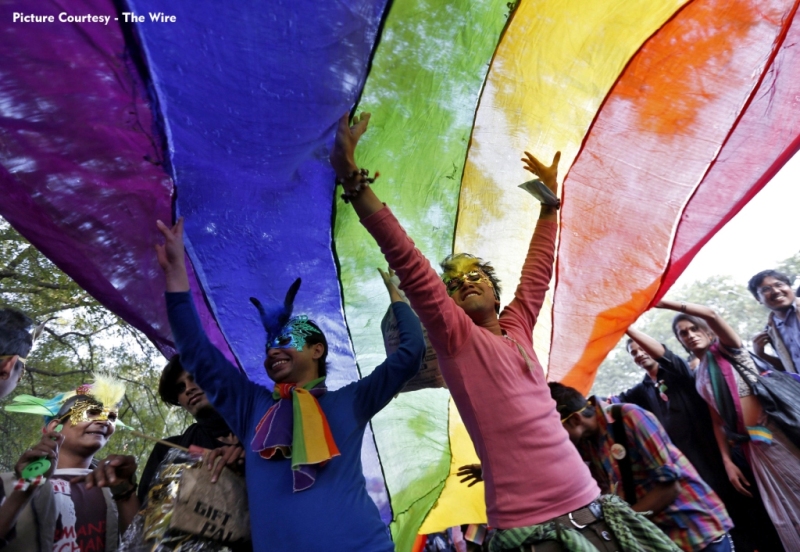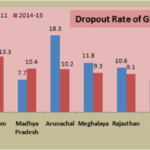Section 377 of the Indian Penal Code (IPC) was introduced in the year 1860, at the time of the British rule in India. India has unfortunately inherited the colonial legacy of alienating those who are different from the mainstream norm. This legacy is similar to the caste-based hierarchical and feudal social structures that are the foundation of the Indian society. As per the aforementioned IPC, any sexual activity which is ‘against the order of nature’ is considered criminal and is liable to persecution. In the year 2009, the High Court of Delhi, decriminalized the Section as it was a direct violation of the citizens’ fundamental right, in the context of ‘private, adult, consensual and non-commercial same-sex conduct’. In the year 2013, the Supreme Court of India overruled the High Court verdict, stating that the Parliament (House of citizens’ representatives) should decide on repealing or amending the Section without the involvement of the Judiciary. In February 2016, Naz Foundation (Not-for-Profit/Non-Governmental Organization (NGO) submitted a Curative Petition (reconsideration of legal judgments in cases of unintentional, gross injustice) to the Supreme Court. The Section 377 awaits Supreme Court’s final verdict on its decriminalization.


Apart from Section 377, Rights of Transgender Persons Bill, 2014 is another Act (a self-authenticated demonstrative evidence used in court proceedings, i.e. A piece of legal document that is proposed to be a Law) which was recently approved upon by the Union Cabinet of the ruling political party in India (Bharatiya Janata Party). Due to the historical deprivation of the LGBT community in India, the Bill/Act seeks to empower them without further delay. Reservations for LGBT in educational institutions, preferential employment opportunities, Government funded welfare schemes, public awareness campaigns and infrastructure are proposed in the Bill. In order for LGBTs to avail the benefits, they will be identified as ‘Other Backward Classes’ by the State authority. Although the Bill has been approved by the Union Cabinet to be turned into a Law; a strong resistance has been demonstrated by the community and the activists opposing the same, due to technical discrepancies in the version of the Bill that received the Government approval.
At CSR, we believe in adding to the LGBT movement and giving it a larger platform. As has already been mentioned, our organization has been working for gender rights since 1983 and our headquarters are based out of New Delhi. We have a long history of networking with the Legislature, Legal and the Executive pillars of the country; since we have been strong advocates of policy reformations, sensitization and capacity building of those who are responsible for policy design and implementation. At the South Asian level, we have been key stakeholders in forming legislations for the countries of Nepal, Bangladesh, Sri Lanka, Pakistan, Bhutan and Afghanistan. Due to the aforementioned, we are in the position to lend a wider reach for the LGBT rights through our network and projects that have been refined over 32 years. Our organization shall be working towards the all-inclusive approach to not only sensitize the society on gender issues but also give a window to the LGBT community to articulate and understand their own lives against the socio-cultural ethos of the country.




